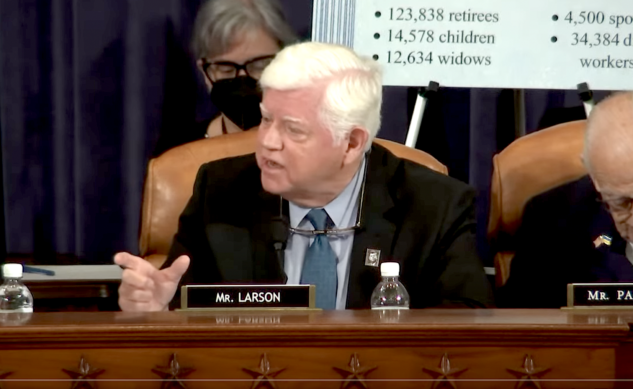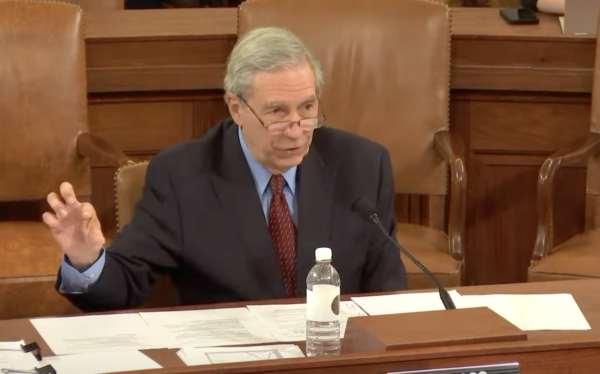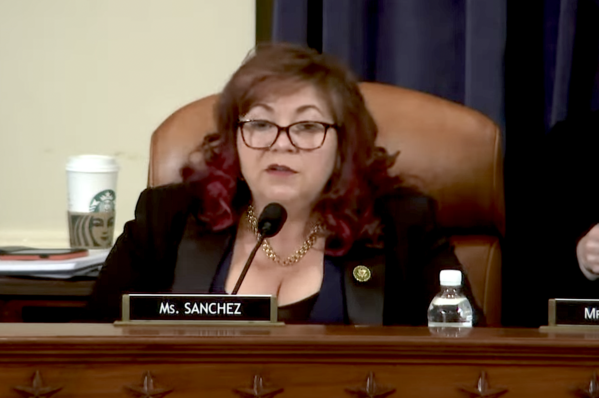
The first hearing of the new Congress on Social Security saw Republicans claiming that they simply want information about the program’s status, while Democrats insisted that it’s time to boost Social Security — and pushed back on GOP proposals to cut benefits.
“Today, we are faced with the fierce urgency of now. Five million Americans receive below-poverty level (Social Security) checks from their government because Congress has not enhanced benefits in more than 50 years,” said Rep. John Larson (D-CT), ranking member and former chairman of the House Ways and Means Social Security Subcommittee. “We need to protect and enhance this vital program, not cut it!”
In written testimony, NCPSSM President and CEO Max Richtman reminded subcommittee members that “Social Security is more than just a safety net program. It is an earned benefit that provides families with insurance to help cover the loss of income if their primary breadwinner dies, becomes disabled or retires.”
The subcommittee, chaired by Rep. Drew Ferguson (R-GA), heard from three expert witnesses: Stephen Goss (Chief Actuary at the Social Security Administration); Barry Huston (Analyst at the Congressional Research Service); and Dr. Phillip Swagel (Director of the Congressional Budget Office). Republicans pressed each witness for demographic and financial data about Social Security in the wake of the latest Trustees report projecting that the program’s combined trust fund will become depleted in 2034, absent Congressional action.
In his testimony, Chief Actuary Goss pointed out that the depletion date hasn’t really fluctuated much in the past decade or so. “The projected date has been 2033 to 2035 for the past twelve years,” he said. “We’re simply getting closer to the date.”

Chief Actuary Stephen Goss says trust fund insolvency date hasn’t really changed much in 12 years
Congressional Republicans have seized on the trust fund’s insolvency date to advocate “reforms” to Social Security that ultimately would cut benefits – including raising the retirement age to 70, means testing, and adopting a more miserly COLA formula.
“The House Republican Study Committee proposed to raise the retirement age to 70 years old, reduce benefits for anyone earning over $60,000 a year, and privatize Social Security,” said Rep. Linda Sanchez (D-CA). She accused Republicans of “trying to cut hard-earned benefits for working class families” and labeled GOP proposals for Social Security “reheated leftovers that keep making their way to the table.”
Subcommittee member Rep. Bill Pascrell (D-NJ) criticized Republican Senator Ron Johnson (R-WI) for calling Social Security a “Ponzi scheme.” The congressman offered a passionate defense of Social Security, saying that the program “has kept the American dream within sight for generations of families. And we know there are a lot of families who subsist on Social Security alone.”
Chairman Ferguson offered Rep. Pascrell the assurance that “the Senator from Wisconsin (Ron Johnson) will not be taking a vote on this subcommittee.” He promised that Republicans seek a “bipartisan approach,” adding, “I would like to put your minds at ease: you won’t have to worry about voting on the Republican Study Committee plan on this subcommittee.”
Democrats, including Rep. Larson in the House and Bernie Sanders in the Senate, have offered legislation to strengthen Social Security’s finances and expand benefits – by asking the wealthy to contribute their fair share. Both Larson’s and Sanders’ bills would adjust the payroll wage cap to raise more revenue from high income earners. Under current law, wages above $160,200 are not subject to Social Security taxes.

Rep. Linda Sanchez: GOP proposals are “reheated leftovers that keep making their way to the table.”
Chief Actuary Goss’ testimony seemed to bolster the case for raising the payroll wage cap. He said that the percentage of wages captured by the payroll tax dropped from 90% in the early 80s to roughly 82% by the year 2000, “knocking down revenue we would have been getting.” Goss attributed this gap to rising income inequality, with those near or above the “payroll tax maximum” earning increasingly higher wages during the past four decades than those below.
With nearly half of retirees depending on Social Security for all of their income, and many teetering on the brink of poverty even with their monthly benefit checks, the stakes could not be higher. “Social Security is a promise,” said Rep. Pascrell. “So, whatever changes we’re going to make, we better get it right.”
**** Watch the full Social Security Subcommittee hearing here ****


